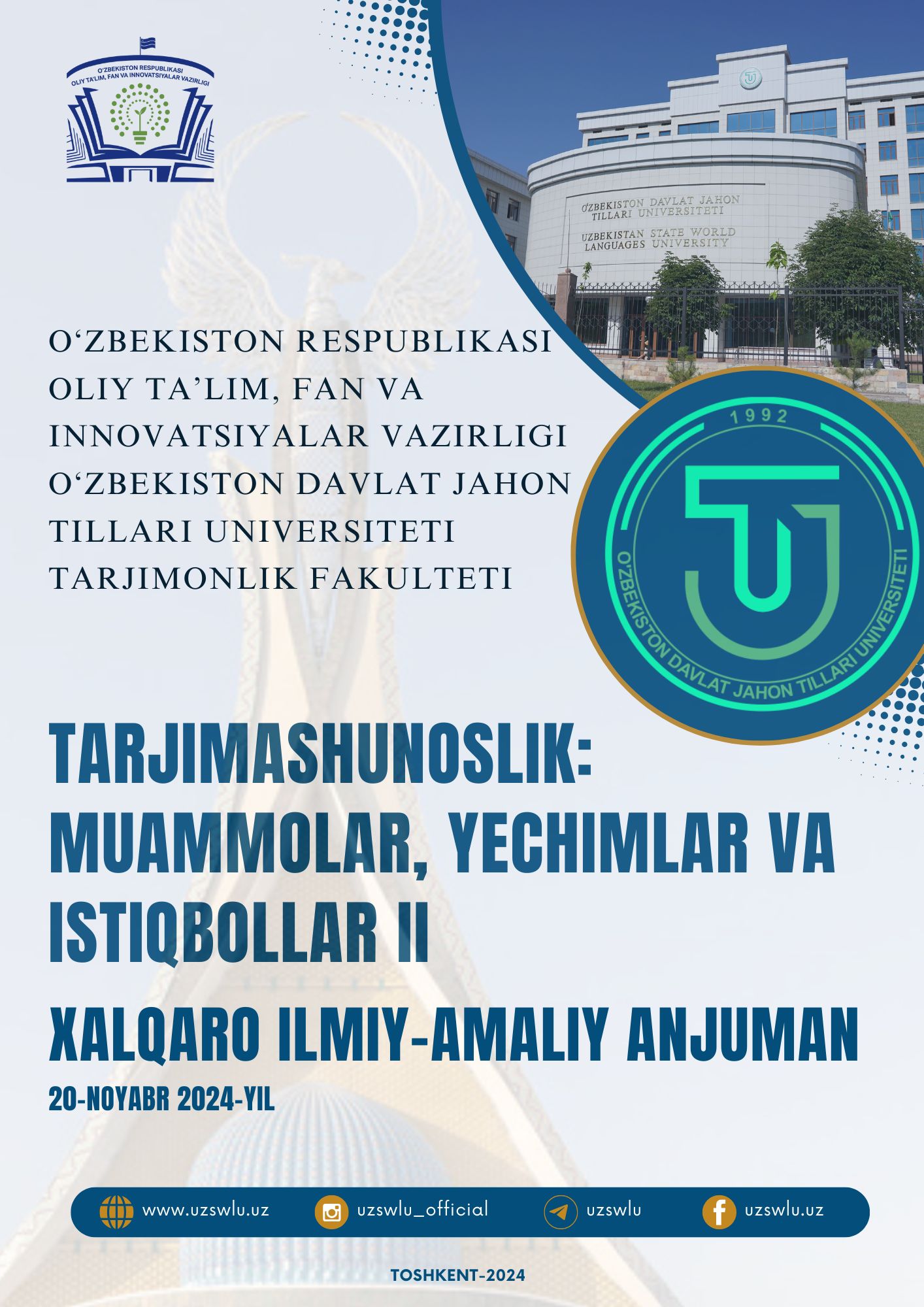A COMPARATIVE STUDY OF SOCIOLINGUISTIC COMPONENTS IN UZBEK AND ENGLISH PROVERBS ABOUT TIME
Kalit so‘zlar
proverbs, time, sociolinguistics, Uzbek language, English language, cultural comparison, linguistic analysis.Annotasiya
This article provides a comparative analysis of Uzbek and English proverbs centered on the concept of time. By examining the sociolinguistic elements in proverbs from each culture, the study reveals how time is perceived, valued, and linguistically expressed. The research adopts a qualitative content analysis method to explore cultural, linguistic, and philosophical aspects embedded in time-related proverbs, illuminating both universal themes and distinct cultural views of time.
Foydalanilgan adabiyotlar ro‘yhati
Mirzaev, T., Musoqulov, A., and Sarimsoqov, B. (2005). O‘zbekxalqmaqollari. Toshkent: Sharq.
Sarimsoqov, B. (1981). O‘zbekfolkloriningepikjanrlari. Toshkent: Fan.
Wilson, F.P. (1970). The Oxford Dictionary of English Proverbs. Oxford: ClarendonPress.
Mieder, W., Kingsbury, S.A., and Harder, K.B. (1992). A Dictionary of American Proverbs. NewYork: OxfordUniversityPress.
Mamatov, A.E. and Bazarova, L.A. (2014). Uzbek, Russian and English proverbs: Linguistic and cultural aspects. Journal of Language and Literature, 5(1), 155-157.
Mieder, W. (2004). Proverbs: A Handbook. Westport, CT: GreenwoodPress.
Dadabaev, T. (2015). Identity and Memory in Post-Soviet Central Asia: Uzbekistan's Soviet Past. London: Routledge.
Honeck, R.P. (1997). A Proverb in Mind: The Cognitive Science of Proverbial Wit and Wisdom. Mahwah, NJ: LawrenceErlbaum Associates.

